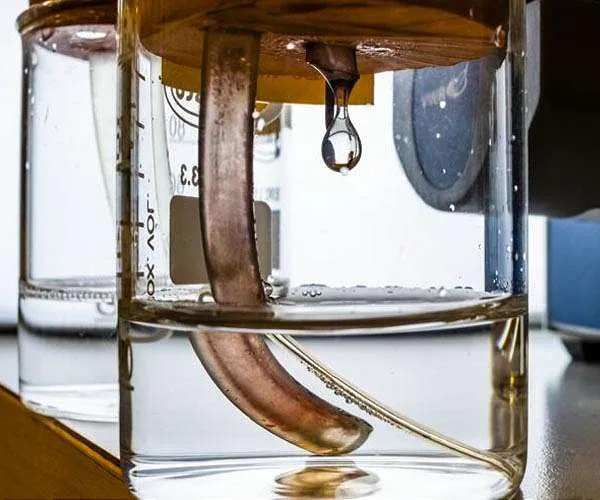LiU scientists initially to create an organic battery
- Scientists at the Laboratory of Organic Electronics, Linkoping University, have for the first time showed an organic battery. It is of a kind called a "redox flow battery", with a big capability that can be utilized to store energy from wind generators as well as solar cells, and also as a power bank for cars.

Redox flow batteries are stationary batteries in which the energy lies in the electrolyte, outside of the cell itself, as in a fuel cell. They are typically marketed with the prefix "eco", considering that they open the opportunity of saving excess power from, for instance, the sunlight and wind.
Even more, it seems feasible to recharge them an endless variety of times. Nevertheless, redox flow batteries usually include vanadium, a limited and pricey steel. The electrolyte in which power is kept in a redox flow battery can be water-based, that makes the battery safe to utilize, however causes a reduced power thickness.
Mikhail Vagin, primary research study designer, and also his associates at the Laboratory of Organic Electronics, Campus Norrkoping, have currently been successful in producing not only a water-based electrolyte yet additionally electrodes of organic product, which increases the energy density significantly. It is possible this way to make totally organic redox flow batteries for the storage space of, for instance, energy from the sunlight as well as wind, and also to make up for lots variant in the electrical supply grid.
They have used the performing polymer PEDOT for the electrodes, which they have actually doped to deliver either positive ions (cations) or negative ions (anions). The water-based electrolyte they have actually established includes a remedy of quinone particles, which can be removed from forest-based materials.
"Quinones can be stemmed from wood, however here we have actually made use of the exact same molecule, along with different versions of the carrying out polymer PEDOT. It ends up that they are extremely suitable with each other, which resembles a gift from the natural world", says Viktor Gueskine, principal research engineer in the Laboratory of Organic Electronics, as well as among the writers of the write-up currently released in Advanced Functional Materials.
The high compatibility implies that the PEDOT electrodes assist the quinone molecules change in between their oxidised and their lowered states, and also this way develop a flow of protons and electrons.
"It is normally challenging to manage the ion procedure, however we have handled it below. We likewise utilize an essential phenomenon within electrocatalysis in which one special ion in solution, in this situation quinone ions, is transformed to power. The phenomenon is conceptualised by us as ion-selective electrocatalysis, and also possibly exists in various other sorts of membrane storage devices such as batteries, gas cells and supercapacitors. This result has never ever formerly been discussed. We showed it for the first time in redox flow batteries", states Mikhail Vagin.
The organic redox flow batteries still have a lower energy density than batteries that contain vanadium, however they are very cheap, completely recyclable, secure, and perfect for saving energy and compensating for load variants in the electrical supply grid. Maybe in the future we will have an organic redox flow battery in the house, as a power bank for the electrical cars and truck.
Also read
- Atmos Finalizes Funding for 100-MW Merredin Battery Project
- RPC, Greenfield Win Approval for Vale of Glamorgan Battery Storage
- Self-Assembling Molecule Breakthrough Brings Commercial Perovskite Solar Closer to Market
- Ignitis Unveils Ambitious 291-MW Battery Buildout Across Lithuanian Renewable Sites
- Renova Secures Financing for 30-MW Battery Project
